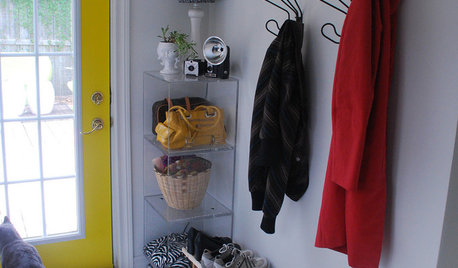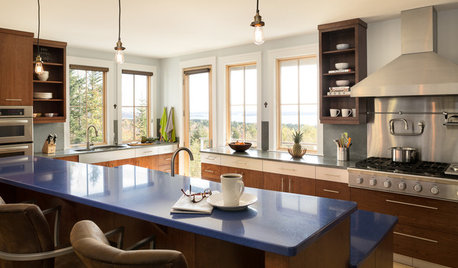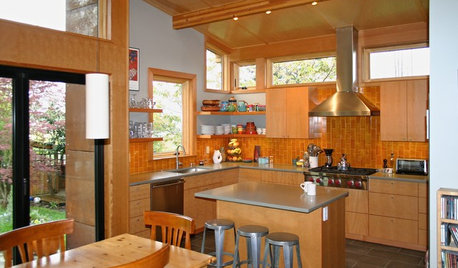Options for young folks just starting out?
bookworm226
13 years ago
Related Stories

DECORATING GUIDESHow to Decorate When You're Starting Out or Starting Over
No need to feel overwhelmed. Our step-by-step decorating guide can help you put together a home look you'll love
Full Story
HOUZZ TOURSHouzz Tour: Globetrotting Couple Make a New Start in California
When a job transfer brings a couple to the West Coast, they create a stylish home for their young family that reflects their love of travel
Full Story
FUN HOUZZ14 Things You Need to Start Doing Now for Your Spouse’s Sake
You have no idea how annoying your habits at home can be. We’re here to tell you
Full Story
ARCHITECTUREDesign Practice: How to Start Your Architecture Business
Pro to pro: Get your architecture or design practice out of your daydreams and into reality with these initial moves
Full Story
ENTRYWAYSOrganizing Starts at the Door
You don't need fancy bins and containers to keep your entryway tidy — just a system that sticks
Full Story
DECORATING GUIDESDecorating 101: How to Start a Decorating Project
Before you grab that first paint chip, figure out your needs, your decorating style and what to get rid of
Full Story
HOUZZ TOURSHouzz Tour: New Love and a Fresh Start in a Midcentury Ranch House
A Nashville couple, both interior designers, fall for a neglected 1960 home. Their renovation story has a happy ending
Full Story
DECLUTTERING5 Ways to Jump-Start a Whole-House Decluttering Effort
If the piles of paperwork and jampacked closets have you feeling like a deer in the headlights, take a deep breath and a baby step
Full Story
MORE ROOMSFresh Start: Organizing Your Craft Room
10 ways to stash your arts and crafts supplies in style
Full Story
CONTRACTOR TIPS10 Things to Discuss With Your Contractor Before Work Starts
Have a meeting a week before hammers and shovels fly to make sure everyone’s on the same page
Full Story





gator_rider2
Beeone
Related Professionals
Danbury Landscape Architects & Landscape Designers · Bellflower Landscape Architects & Landscape Designers · Wheeling Landscape Architects & Landscape Designers · Allentown Landscape Contractors · Centereach Landscape Contractors · Fort Worth Landscape Contractors · Leicester Landscape Contractors · Vineyard Landscape Contractors · Waipahu Landscape Contractors · Wareham Landscape Contractors · Ferguson Landscape Contractors · Barrington Fence Contractors · Fort Lee Decks, Patios & Outdoor Enclosures · Palmetto Decks, Patios & Outdoor Enclosures · Port Saint Lucie Decks, Patios & Outdoor Enclosures